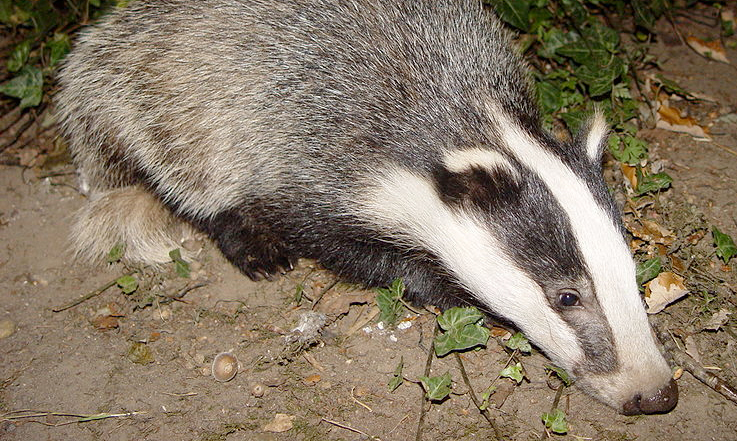
The British Veterinary Association (BVA) has used its annual dinner to call for action on welfare at slaughter, stronger legislation over dog breeding and express disappointment over the badger cull ruling.
The Cardiff City Hall event was attended by parliamentarians, key representatives of animal health organisations and the agri-food industry.
On bovine TB, BVA President Carl Padgett expressed disappointment at the decision to halt the proposed badger cull.
“The promise of an average 16% reduction in herd breakdowns over the coming decade certainly didn’t seem insignificant to the vets and livestock keepers battling this devastating disease on a daily basis.
“But the decision was clear and now I urge my colleagues to do their utmost to support the roll-out of the vaccination policy in the Intensive Action Area.
“However, we hope the option of a badger cull remains on the table for consideration as the TB picture continues to develop, to work alongside vaccination and cattle measures and give us the chance to fight TB without one hand tied behind our backs.”
Padgett reiterated concerns about the future of veterinary laboratories in Wales and made a plea for the option of a badger cull to tackle bovine TB to be put back on the table.
Environment and Sustainable Development Minister John Griffiths AM responded on behalf of the guests.
“We are concerned that meat from non-stunned slaughter is reaching the mainstream market – something that the law did not intend. That’s why we’re calling for meat and products from non-stunned slaughter to be labelled as such" said Padgett as he called on the government to consider the issue of pre-stunning as a welfare measure at slaughter.
“We recognise that it is difficult politically, but BVA has received support from both inside and outside the veterinary profession since raising our concerns publicly. And we would urge you, Minister, to consider these issues as you develop your consultation on welfare at slaughter later this year.”
The BVA urged Wales to tackle its "reputation for puppy farming by listening to those experts that came together in the Task and Finish Group".
“In our response to the latest consultation we make the case for not watering down the recommendations on staff to dog ratios – one staff member for 30 adult dogs is insufficient and the Task and Finish Group proposal for one to 20 should be the maximum. We have also repeated our call for a section on hereditary disease and responsible breeding.”
On veterinary laboratories, surveillance and the role of government vets, Mr Padgett reminded guests of the BVA’s concerns about the potential impact of lab closures in Wales.
“The announcement caught us by surprise, not least because decisions appeared to have been made before a proper assessment had been undertaken on the impact on the UK’s surveillance network….We believe any future model must be shaped by good surveillance strategies, and not the need to cut costs.
“There is never a good time for a new disease to appear, but the emergence of Schmallenberg Virus in northern Europe and England has provided us with a very timely reminder of the acute need for robust national and international surveillance systems.
“The state will always need a core of properly trained, properly motivated, and properly rewarded veterinary surgeons in the event of a notifiable disease outbreak and we would strongly urge against the downgrading of veterinary roles in government, both in terms of individual numbers and in status.”
